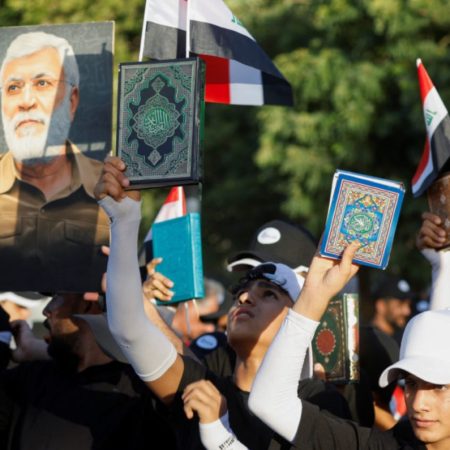Community News (V16-I19)
Muslims among Truman Scholarship recipients
The prestigious Truman Scholarship recipients for 2014 were announced last week and there are quite a few Muslim students among them. They are among 59 students selected from 655 nominations from nearly 300 institutionsannounced as recipients by former Secretary of State Madeleine Albright. Each one will receive up to $30,000 in scholarship money for their graduate studies, as well as “priority admission and supplemental financial aid at some premier graduate institutions, leadership training, career and graduate school counseling, and special internship opportunities within the federal government, according to the Truman Scholarship’s website.
A few of them along with their profiles are as follows:
Safiya Subegdjo (Tufts University)
Safiya is a junior studying International Relations and Leadership Studies. She plans to obtain graduate degrees in public health and medicine, aspiring to be a global health diplomat. For four years, Safiya has worked with resettled refugees in the greater Boston area and currently coordinates the Tufts University Refugee Assistance Program. Through the Institute for Global Leadership, Safiya traveled to Jordan with a team of student researchers, assessing the challenges of a temporary health system for Syrian refugees. She also worked on implementing health education initiatives at the Foundation for Mother and Child Health in Jakarta, Indonesia. Safiya is a Tisch Scholar for Citizenship and Public Service and a volunteer at Brigham and Women’s Hospital.
Sarah Mirza (University of Georgia)
Sarah studies Spanish and human geography. She hopes to obtain a Master’s degree in Geography with a focus on labor and migration and, later, to attend law school and specialize in immigration law. These degrees will help further her work in community organizing, which is currently informed by her experiences as a founding member of the Undocumented Student Alliance at UGA and as an intern at Workers Defense Project in Austin, TX.
Rana Abdelhamid, Middlebury College
Rana is a Posse Scholar pursuing a Bachelor’s degree in International Politics and Economics. She speaks Arabic and Spanish and is passionate about female empowerment. Prior to starting college, she founded New York City’s Women’s Initiative for Self-Empowerment (WISE). This self-defense, entrepreneurship and leadership organization has reached over 150 women through its fellowship and summer programs. As an organizer and human rights activist, she also serves as the Student Activist Coordinator and Co-Chair of the National Youth Action Committee for Amnesty International USA. At Middlebury, she has been elected to the Student Government Association for the past three years, works as a research assistant in the Political Science department and is a fellow for the Center for Social Entrepreneurship.
Yusef Al-Jarani, University of Chicago
Yusef is American by nationality, Libyan by memory, Muslim by religion, Western by culture, and universalistic by principle. He believes that in this era of globalism and economic interdependence, security and prosperity are no longer components of a zero-sum game where one country’s loss is another’s gain. Alleviating youth unemployment in the Middle East and North Africa can advance the economic and security interests of the U.S., our allies, and the region. He hopes to use the knowledge and skills he has gained through the great education this country afforded him to honor Truman’s legacy and engage with the world. In doing so, he hopes to help a people who so desperately need it and, in turn, give back to the country that supported him, invested in him, and allowed him to do the same for others in need.
Hira Baig, Rice University
Hira, a Sugar Land, TX native, is pursing degrees in Political Science and Policy Studies. Currently working for Teach for America, Hira also interned for the U.S.-U.K. Fulbright Commission, the U.S. House of Representatives, the World Affairs Council of Houston, and various political campaigns. Hira has traveled to London and Shanghai to research the impacts of Islamophobia on Muslim communities. Chosen as a coach for Interfaith Youth Core’s Leadership Institutes, Hira is spending her junior year traveling the country to help coach future interfaith leaders. With interests in religion, public policy and politics, Hira will pursue law school and a career at the Department of State.
Rahfin Faruk, Southern Methodist University
Rahfin, an SMU President’s Scholar, is an Economics, Political Science, Public Policy and Religious Studies major with a minor in Mathematics. He intends to pursue a Master of Business Administration and a Master of Public Policy in order to work in the social enterprise sector. Rahfin, the former editor in chief of the SMU student newspaper, has been published in The Dallas Morning News and The Huffington Post. He founded a zero-interest micro finance initiative focused on financial inclusion, and he has interned at Grameen Bank in Bangladesh and the U.S. Department of State.
Syed Imaad helps develop MRI sensor
CAMBRIDGE,MA–Syed Imaad, a recent master’s degree recipient from the prestigious MIT, is part of a team that has has invented an injectable device that reveals oxygen levels over several weeks and can be read with magnetic resonance imagigs (MRI).
Using this kind of sensor, doctors may be able to better determine radiation doses and to monitor whether treatments are having the desired effect, according to the researchers, who describe the device in the Proceedings of the National Academy of Sciences
The team was led by professor Michael Cima.
Shawn Ahmed’s research links aging to cellular interactions
University of North carolina professor Shawn Ahmed, PhD, shows that tweaking specific cellular mechanisms helps tiny worms overcome infertility through a pathway of cellular interactions that result in long life. The finding gives clues to how the molecular interactions in cells of one organism affect progeny many generations later.
The evidence for what causes aging has typically been limited to the study of a single organism’s lifespan; our cells divide many times throughout our lives and eventually cause organs and our bodies to age and break down. But new research from the UNC School of Medicine suggests that how we age might depend on cellular interactions that we inherit from ancestors throughout many generations.
By studying the reproductive cells of nematodes – tiny worms found in soil and compost bins – Shawn Ahmed, PhD, an associate professor of genetics, identified the Piwi/piRNA genome silencing pathway, the loss of which results in infertility after many generations. He also found a signaling pathway – a series of molecular interactions inside cells – that he could tweak to overcome infertility while also causing the worms to live longer adult lives.
The research, in collaboration with researchers at the University of Cambridge and described in a paper published in the journal Cell Reports, suggests that it’s possible to manipulate the aging process of progeny before they’re even born.
The finding gives scientists a deeper understanding of what may govern aging and age-related diseases, such as some cancers and neurodegenerative conditions
Islamic Awareness Week held at UT-Arlington
ARLINGTON,TX–Muslim students at the University of Texas-Arlington held several events last week to create awareness about Islam and Muslims in the wider community. A series of talks on Islam+Women, Islam+Science, and Islam+Prayer were addressed by prominent speakers.
“We’re just trying to introduce Islam to the overall campus of UTA, trying to get some exposure so that people can know more about us and actually apply a face to Muslims on campus,†an event coordinator told the student newspaper.
The talks were well attended and sparked serious discussions.
16-19


















2014
1,441 views
views
0
comments